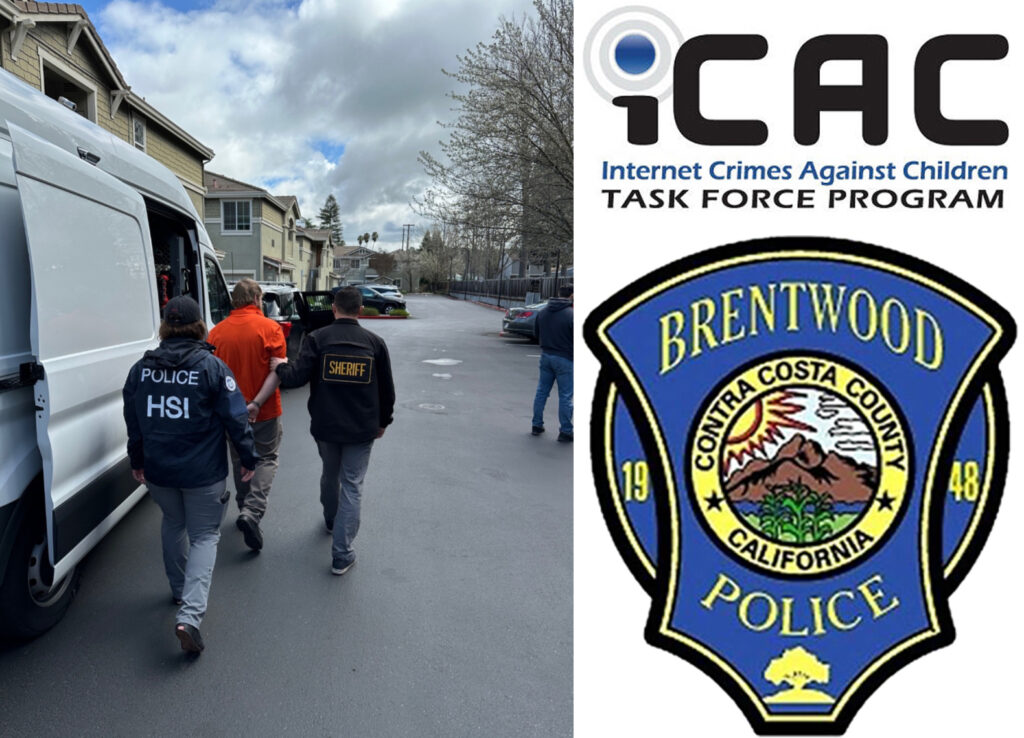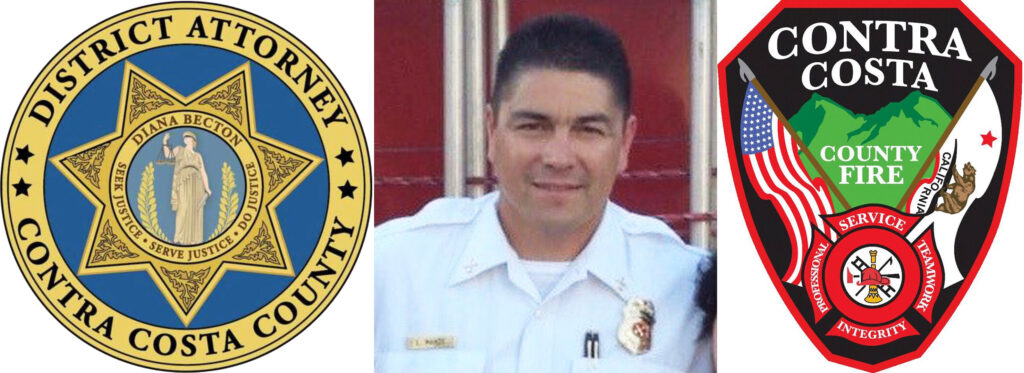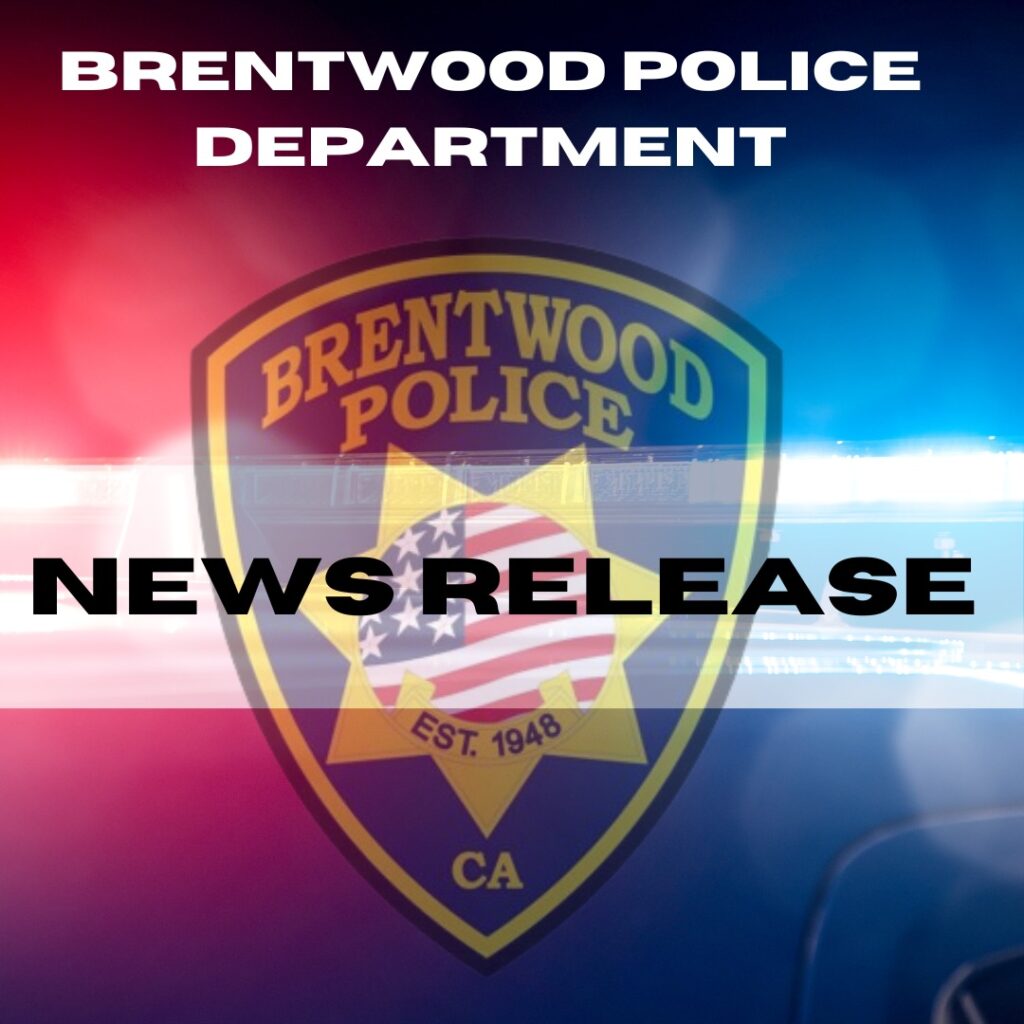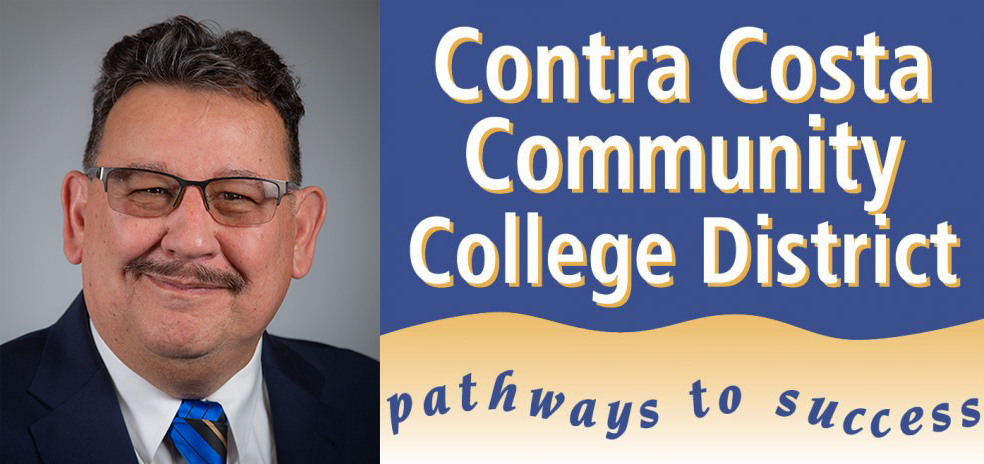Female defendant pleaded guilty to distributing Norco without a legitimate medical purpose; operated under the name “Mindful Medical”
By U.S. Attorney’s Office, Northern District of California
OAKLAND – Parto Karimi, a former Bay Area doctor, has been sentenced to one year and one day in federal prison for distributing powerful opioids outside the scope of medical practice, announced United States Attorney Ismail J. Ramsey and Drug Enforcement Administration (DEA), San Francisco Field Division, Special Agent in Charge Brian M. Clark. The sentence was handed down on March 15, 2024, by the Hon. Jon S. Tigar, United States District Judge.
Karimi, 59, of Alamo, California, pleaded guilty in July 2023 to one count of distributing hydrocodone, a Schedule II controlled substance, outside the scope of professional practice, in violation of 21 U.S.C. § 841(a)(1) and (b)(1)(C). According to the government’s sentencing memorandum, Karimi practiced medicine from an accessory dwelling unit on the grounds of her suburban home from roughly 2011 to 2022. Her practice operated under the name “Mindful Medical.” Karimi was a licensed practitioner of internal medicine who had previously worked as an emergency room doctor at an East Bay hospital and was authorized to prescribe controlled substances as part of her medical practice.
According to the government’s sentencing memorandum, the DEA began investigating Karimi after receiving concerning information from the family of one of Karimi’s former patients, who had passed away. The investigation included multiple visits by undercover agents to Karimi’s medical practice. During one, on October 1, 2021, an undercover agent asked Karimi for 10mg Norco tablets based on a claim of leg pain resulting from work as a restaurant server. Karimi admitted in her plea agreement that she wrote the undercover agent a prescription for 60 high-dose Norco pills without conducting a physical examination, without asking follow-up questions about the undercover’s reported pain, without obtaining medical records, and without exploring alternative treatment options or trying a lower dose. Karimi admitted that, in doing so, she knew she was acting in an unauthorized manner by prescribing a controlled substance outside the usual course of medical practice. She also admitted she knew the drug she prescribed was a powerful opioid that can be highly addictive and is liable to abuse by patients.
The government argued in its papers that Karimi wrote medical prescriptions for opioids like Norco in exchange for street drugs including cocaine and methamphetamine, as well as cash payments.
In addition to sentencing Karimi to prison, Judge Tigar ordered the defendant to serve three years of supervised release to begin after her prison term is completed. Judge Tigar also ordered the defendant to forfeit her California medical license and to pay a $4,000 fine.
Assistant United States Attorney Daniel Pastor is prosecuting the case with assistance from Laurie Worthen. The prosecution is the result of an investigation by DEA, with assistance from the United States Department of Health and Human Services – Office of Inspector General and the California Department of Justice Division of Medical Fraud and Elder Abuse.
Read MoreSeize devices as part of county’s Internet Crimes Against Children Task Force
By Brentwood Police Department
Recently our agency took part in the Contra Costa County Internet Crimes Against Children (ICAC) Task Force for a week-long operation targeting adults who were seeking to meet minors for sex with the goal of identifying victims of child sexual abuse.
A total of 12 law enforcement agencies participated in “Operation Broken Heart,” which encompassed hundreds of law enforcement work hours throughout the week. The ICAC Task Force resulted in 7 arrests, the identification of minors, the seizure of multiple devices and a “safer community, which is the primary focus of these missions.
The ICAC program helps state and local law enforcement agencies develop an effective response to technology-facilitated child sexual exploitation and internet crimes against children. This includes forensic and investigative services, training, technical assistance, victim services, and community education.
Our agency remains committed to protecting the most vulnerable in our community and would like to thank all of the participating agencies for their contributions last week in combatting child exploitation.
Read More
Faced 9 years in prison, given 30 days in Sheriff’s Work Alternative Program, 1 year probation
Total loss to district: $65,000
By Ted Asregadoo, PIO, Contra Costa District Attorney’s Office
The Contra Costa District Attorney’s Office secured a felony grand theft conviction against a former battalion chief with the Contra Costa Fire Protection District as part of a negotiated disposition.
58-year-old Louis Manzo, Jr. of Danville was initially charged by the District Attorney’s Office in 2019 with felony crimes related to the misappropriation of public funds that occurred between 2014-2019. Moreover, Manzo, Jr. committed theft of Contra Costa Fire Protection District funds by falsifying information on timekeeping records, paid time off requests, and then redirecting public funds for his personal use. The Fire Protection District lost over 46-thousand dollars in fraudulent salary payments. (See related article)
In total, the loss to Con Fire is $46,000 in direct salary payments and $19,000 in costs incurred to cover shifts while Manzo was out of the office or claiming to be on special assignment.
Contra Costa District Attorney Diana Becton said: “Acts of public corruption erode the integrity of our institutions that are here to serve our communities. The resolution in this case ensures that the misappropriated funds are returned to the Fire District.”
The case was prosecuted by Deputy District Attorney Steven Bolen, who said that Manzo, Jr. pled no contest to one count of felony grand theft [PC 487(a)]. He’s been ordered by the court to serve 30 days of custody time through the Sheriff’s Work Alternative Program, one year of court probation, 30 hours of community service, must pay restitution and fines, cannot have any contact with Fire District employees, and is ordered to stay away from all official Fire District locations.
Manzo, Jr. also must comply with searches and seizures of records and other materials related to his finances. In addition to the court-ordered penalties, Manzo Jr.’s felony plea will also affect his county pension benefits under Government Code section 7522.72.
According to his LinkedIn profile, Manzo, Jr. started as a Firefighter in 1990 and had “30 years in fire safety and response, moving through the ranks from Firefighter through Battalion Chief. Manage up to seven stations, overseeing budgets up to $20 million, and leading up to 60 personnel, effectively supporting daily operations, emergency events, and apparatus shops.”
As Battalion Chief, Manzo, Jr. “Managed seven fire stations leading and supporting nine Fire Captains, overseeing up to 60 personnel and a budget of up to $20 million. Oversaw training, development, and education of personnel, driving improvements and building collaborative teams.”
Case No. 01-192362-2 | The People of the State of California v. Manzo, Louis Jr.
Allen D. Payton contributed to this report.
Read MoreBy Lt. Chris Peart, Brentwood Police Department
On Saturday, March 16, 2024, at approximately 8:00 pm, Brentwood officers responded to a report of a shooting at the 400 block of Orchard Drive. When officers arrived, they located an adult male victim who had been shot multiple times. The victim is recovering in a local hospital and is expected to survive.
After speaking to the victim and witnesses in the area, officers identified an adult suspect who was taken into custody without further incident.
This was an isolated incident and there is no further threat to the community. This investigation is ongoing and should you have any additional information to provide, please contact Detective Bascom at (925) 809-7822.
Read MoreIf you earn $28K per year or more; unless state legislature reverses course; 5 local legislators voted for bill
By Allen D. Payton
Bill Votes – AB-205 Energy. (ca.gov)
In 2022, the California legislature passed and Governor Gavin Newsom signed AB205 – Energy into law, which requires that the Public Utilities Commission (CPUC) “shall, no later than July 1, 2024, authorize a fixed charge for default residential rates.” As a result, the CPUC is currently reviewing proposals for a tiered, fixed-price structure, as directed by the bill.
According to FOX Business, the state’s three main, investor-owned utilities – Pacific Gas and Electric (PG&E), Southern California Edison (SCE) and San Diego Gas and Electric (SDG&E) – proposed a tiered rate plan: “Households earning $28,000-$69,000 would be charged an extra $20 to $34 per month. Those earning $69,000-$180,000 would pay $51 to $73 per month, and those earning more than $180,000 would pay a $85-to-$128 monthly surcharge.”
According to California Energy Markets, “The first version of the income-graduated fixed charge, or IGFC, could be implemented by SDG&E and SCE by 2026, according to Freedman. PG&E is in the process of changing its billing system, he said, so its implementation would likely be in 2027.”
That’s on top of the 13% increase for both electricity and natural gas rates for PG&E customers approved by a unanimous vote of the CPUC last November that went into effect on January 1, 2024. Plus, another vote on March 7 for $4-$6 in additional monthly fees for the typical ratepayer that will take effect in April, was approved for PG&E to recover $516 million in costs for wildfire mitigation, gas safety and electric modernization.
According to a Canary Media report, “The utilities are also proposing to significantly lower the per-kilowatt-hour charges that customers pay to counterbalance the big increase in fixed charges, and to structure both fixed and volumetric charges in a way that allows lower-income customers to save money overall. Still, the proposal, if enacted, would instantly make California the home of the nation’s highest monthly utility fixed fees, according to analysis by clean energy research firm EQ Research.”
The IGFC would require the CPUC to evaluate every ratepayer’s income annually in order to assess the appropriate fee.
Local Legislators Voted for Bill
Five of Contra Costa’s state legislators supported AB205 on party-line votes including Assemblymembers Tim Grayson, Rebecca Bauer-Kahan, Buffy Wicks, Lori Wilson and State Senator Nancy Skinner. The first four each voted for the bill, twice.
Assemblyman Jim Frazier didn’t vote on the bill in 2021 and State Senator Steve Glazer didn’t vote on AB205 during the State Senate’s floor vote in 2022. Newsom signed the bill into law on June 30, 2022.
Details of New Law
As of July 1, 2022, the applicable portion of the law now reads as follows:
“SEC. 10. Section 739.9 of the Public Utilities Code is amended to read:
(d) The commission may adopt new, or expand existing, fixed charges for the purpose of collecting a reasonable portion of the fixed costs of providing electrical service to residential customers. The commission shall ensure that any approved charges do all of the following:
(1) Reasonably reflect an appropriate portion of the different costs of serving small and large customers.
(2) Not unreasonably impair incentives for conservation, energy efficiency, and beneficial electrification and greenhouse gas emissions reduction.
(3) Are set at levels that do not overburden low-income customers.
(e)(1) For the purposes of this section and Section 739.1, the commission may authorize fixed charges for any rate schedule applicable to a residential customer account. The fixed charge shall be established on an income-graduated basis with no fewer than three income thresholds so that a low-income ratepayer in each baseline territory would realize a lower average monthly bill without making any changes in usage. The commission shall, no later than July 1, 2024, authorize a fixed charge for default residential rates.
(2) For purposes of this subdivision, ‘income-graduated’ means that low-income customers pay a smaller fixed charge than high-income customers.”
Californians Pay 27% More for Electricity Than National Average
According to Energy Sage, California residents currently pay 31 cents per kilowatt-hour compared to the national average of 18 cents per kilowatt-hour. “On average, California residents spend about $256 per month on electricity. That adds up to $3,072 per year. That’s 27% higher than the national average electric bill of $2,426.”
Effort to Reverse Course
Now, some members of the legislature are trying to backpedal on their votes and stop the IGFC increases from being approved. As they had unsuccessfully attempted last September, on Jan. 30, Republican lawmakers tried to bring an immediate vote to repeal AB 205 to the Senate floor, but Democrats who have the majority, voted to table the motion.
That same day, Assemblymember Jacqui Irwin, (D-Thousand Oaks) and 10 others introduced a bill to repeal AB205. According to Irwin’s press release about the new bill, “The CPUC has had the authority to implement a fixed rate charge, up to $10, since 2015, but has declined to do so. I see no need to rush now. It’s time to put some reasoning back into how we charge for electricity in California.” Bauer-Kahan is listed as a principal coauthor. It was also introduced in the State Senate.
According to the aforementioned Canary Media report, “The newly introduced bill, AB 1999, would limit the CPUC to adding a fixed charge of no greater than $10 a month on customers’ bills to pay for the rising costs of maintaining the state’s utility grids, regardless of household income.”
The bill is in the committee process, was referred to the Assembly Committee on Utilities and Electricity. If approved it will then head to the floors of both houses of the state legislature for votes and if passed, the bill will head to the governor’s desk for his signature or veto.
3/27/24 UPDATE: According to Sylvie Ashford, Energy & Climate Policy Analyst for The Utility Reform Network (TURN) which supports the implementation of an income-graduated fixed charge, and is one of the authors of the organization’s IGFC proposal,
- “The IOUs are no longer proposing the charge levels that you cite (e.g. up to $128 per month). The CPUC has already ruled that the first iteration of the fixed charge will have income tier cut-offs based only on the existing CARE/FERA programs, with no ‘high-income’ tier. The IOUs submitted new proposals in the fall, with a max charge of $51-$73 (page 5 of their brief).
- It’s not that utilities will “also” lower $/kWh rates. The fixed charge itself lowers rates, as is comprised only of costs that are included in rates today. It shifts some fixed costs out of electricity rates and into a separate line item.
- Thus, your headline that “Californians face higher electricity rates based on income” is incorrect. All customers will pay lower electricity rates (15% lower under TURN’s proposal). Some higher income customers will see higher overall bills only if their assigned fixed charge exceeds their savings from the reduced rates. (For example, TURN’s proposal has a maximum monthly fixed charge of $30, and we estimate those customers will see $3-7 bill increases, depending on their usage).”
Iin addition, she shared, “TURN believes that the fixed charge presents a critical opportunity to reduce low-income energy bills in the state. TURN also believes much more is needed to make bills affordable and intervenes widely at the CPUC to oppose rate increases. A few quick points:
- The fixed charge will not increase utility revenue/profits; it removes costs from rates and shifts them to a separate line item on your bill.
- This will reduce electricity rates ($/kWh) for all Californians, making it more feasible to operate electric vehicles and appliances.
- Because the new line item is based on income, it will also reduce overall bills for low-income Californians (likely to be defined as the low-income CARE/FERA discount programs, which cover 30% of the state) and it will make electricity bills less regressive.
- TURN strongly opposes the joint proposal of the utilities for fixed charges, and the CPUC is not considering it. The CPUC has already ruled that the first iteration of the fixed charge will have income tier cut-offs based only on the existing CARE/FERA programs, with no ‘high-income’ tier, so the average fixed charge will be low (TURN proposes an average of $23.50, which is the same charge already offered by the Sacramento Municipal Utility District).
Ashford was asked to explain how, if the cost of providing electricity does not differ from one user to the next in one of the three utility company’s service areas, it’s fair to charge one customer more based on their income. She was also asked weren’t renewals supposed to reduce electricity costs and aren’t we relying more on them, now for electricity generation in California,
Ashford responded, to your questions about the fairness of paying based on income, and why rates have been increasing when generation keeps getting cheaper (thanks to renewables): the problem is that your $/kWh electricity rates today are largely comprised of costs that have nothing to do with your personal usage. They are bloated with the fixed costs of the grid, like the utilities’ wildfire mitigation programs and infrastructure projects.
As a result, a UC Berkeley study found that California’s electric rates are highly regressive; low-income households pay more of their income on shared system costs. Households in hot climates, that need to use more electricity to keep cool, also pay more than their fair share of these costs. On the flipside, solar customers are paying less than their fair share, which has created a ‘cost shift’ that hikes rates for everyone else (source).
TURN is a strong advocate of reducing utility spending, which is the most important step to reduce rates. The fixed charge alone doesn’t address that problem, as it simply shuffles the collection of existing costs, but it will make bills more affordable for those that are disproportionately burdened by shared system costs.”
Read More
Both already out of custody one on bond, the other with no charges filed
By Brentwood Police Department
On Sunday night, March 10, 2024, a Brentwood officer conducted a routine traffic stop in the area of Lone Tree Way and Fairside Way. The stop was initiated due to multiple vehicle code violations observed by the officer.
During the course of the stop, the officer found an un-serialized loaded high-capacity firearm in the backseat of the vehicle. As a result, 19-year-old Daekaylah Leiloni Little and 20-year-old Louis Edward Quinn, Jr., both of Antioch, were placed under arrest and transported to the Martinez Detention Facility for booking.
According to localcrimenews.com they were charged with carrying a loaded firearm on person or in vehicle while in a public place, carrying a concealed weapon in a vehicle and a large capacity magazine.
According to the Contra Costa County Sheriff’s Department, as of Monday, March 11 Little bonded out of custody and Quinn was released with no charges filed on Wednesday, March 13.
According to an August 22, 2021, post on her Facebook page, Little was a cheerleader at Deer Valley High School in Antioch.
This incident serves as a reminder of the importance of routine traffic stops and the diligent efforts of our officers in keeping the community safe.
Allen D. Payton contributed to this report.
Read MoreCould face 10 years in prison and $250,000 fine
By U.S. Attorney, Northern District of California
 OAKLAND – On Monda, March 4, 2024, a federal grand jury indicted Edijalma De Souza Ferreira, charging him with smuggling ammunition from the United States to Brazil without an export license, announced United States Attorney Ismail J. Ramsey and Homeland Security Investigations (HSI) Special Agent in Charge Tatum King.
OAKLAND – On Monda, March 4, 2024, a federal grand jury indicted Edijalma De Souza Ferreira, charging him with smuggling ammunition from the United States to Brazil without an export license, announced United States Attorney Ismail J. Ramsey and Homeland Security Investigations (HSI) Special Agent in Charge Tatum King.
According to the indictment, filed February 27, Ferreira, 46, of Richmond, Calif., smuggled thousands of rounds of ammunition in two container shipments that were exported from the Port of Oakland in 2021. Export of the ammunition was contrary to the Export Control Reform Act and associated regulations. The indictment charges Ferreira with a felony violation of 18 U.S.C. § 554.
Ferreira was arrested on February 29, 2024, and made his initial appearance in federal court in Oakland the same day. He was released on bond and his next appearance is scheduled for March 6, 2024, before U.S. Magistrate Judge Donna M. Ryu for identification of counsel.
An indictment merely alleges that crimes have been committed, and all defendants are presumed innocent until proven guilty beyond a reasonable doubt. If convicted, Ferreira faces a maximum sentence of ten years of imprisonment, and a fine of $250,000 for the 18 U.S.C. § 554 violation. However, any sentence following conviction would be imposed by the court after consideration of the U.S. Sentencing Guidelines and the federal statute governing the imposition of a sentence, 18 U.S.C. § 3553.
Assistant U.S. Attorney Michelle J. Kane is prosecuting the case with the assistance of Kathy Tat. The prosecution is the result of an investigation by HSI with assistance from the U.S. Department of Commerce, the U.S. Customs and Border Protection Container Security Initiative, the HSI Brasilia Attaché Office, and the Customs and Revenue Service of Brazil.
See case details at U.S. v. Ferreira, 4:24-cr-00120-YGR-1 (DMR) |
Read More
The suspects’ car, the two suspects arrested, and the cash confiscated from the sale of the stolen merchandise from a Brentwood store on Monday, March 11, 2024. Photos: Brentwood PD
Sold it in Oakland, SF; Hercules PD assists
By Brentwood Police Department
IF YOU DECIDE TO STEAL IN BRENTWOOD
On Monday, March 11, 2024, around 1:30PM, Brentwood officers were dispatched to Ulta at the Streets of Brentwood for a report of a theft of over $6,300 in merchandise. The reporting party provided a description of the two suspects, who had just fled in a vehicle.
BPD officers contacted the Streets of Brentwood Security, who were able to obtain the license plate of the suspect car from video surveillance. The officers confirmed the car was a rental vehicle, as it is common for organized retail thieves to use rental vehicles to commit crimes in order to evade detection.
Later that day around 5:00 PM, Hercules PD located the suspect vehicle and detained two of the occupants identified as 19-year-old Andrea Glaser of Oakland, and 21-year-old Tyerra Destiny Townsend of Pittsburg. BPD detectives responded to the city of Hercules as soon as they were notified.
Both suspects admitted to stealing from Ulta and also said they sold the stolen merchandise in Oakland and San Francisco for cash. None of the stolen merchandise was recovered; however approximately $1,000 in cash was found on Glaser and Townsend.
Glaser had additional warrants and Townsend, who is on felony probation in Contra Costa County, received additional related charges. Both Townsend and Glaser were placed under arrest for organized retail theft.
According to the Contra Costa County Sheriff’s Office, the 5-foot, 4-inch, 120-lb. Townsend is being held on no bail in the West County Detention Center in Richmond. Her next hearing is scheduled for Thursday, March 14 at 1:30 PM in Superior Court. Additional information about Glaser could not be located online.
The cooperation and assistance provided by the Streets of Brentwood Security team and Hercules PD were instrumental in solving this case. Their collaboration exemplifies the collective commitment to maintaining public safety and combating criminal activity in our city.
Furthermore, this investigation highlights the dedication of Brentwood PD officers and detectives in solving crimes and ensuring accountability within the community.
Allen D. Payton contributed to this report.
Read More

Cousins Kellen Chadwick #83 and reigning IMCA Modified State champion Andrew Pearce #15p battle for position. Photo by Katrina Kniss
By Candice Martin, DCRR Racing Media
Antioch, CA…The rainy weather has prevented things from happening at Antioch Speedway for the last three weeks, but this Saturday night, March 16th that’s about to change. The 64th season of auto racing begins with an exciting five-division lineup.
The track at the Contra Costa County Fairgrounds is the only place to enjoy auto racing in the county. There will be weekly racing from Saturday night through the end of October with some events planned in November as well.
The popular IMCA Modifieds are the headliners. This division enters its 35th consecutive championship season. They started in 1990 as the track became the third in the state to add the division.
Nearly 15 years ago, the IMCA Sport Modifieds were offered as a slightly more affordable alternative. This is also the opening night of the fourth season for the IMCA Stock Cars.
Rounding things out will be the Pacific Coast Hobby Stocks, which began being featured at the speedway in 1995. Also, the 26th season for the Wingless Spec Sprints will begin. Antioch Speedway was the first place to feature a wingless, carbureted Sprint Car class in the state.
Last season, Troy Foulger of Oakley and Billy Bowers teamed up for a stellar effort. The duo picked up championships in both the Modified and Stock Car classes, making this the first team to ever win two championships in the same season at the track. Furthermore, Foulger was the IMCA Stock Car State title winner.

IMCA Sport Modified State champion Trevor Clymens #2c and State runner-up Jason Ryan Jr #52 had a close point battle last year. Photo by Katrina Kniss
The closest point battle last season was featured in the IMCA Sport Modified ranks, where Kenny Shrader of Pacheco, Jason Ryan Jr of Oakley, Trevor Clymens of Brentwood and Mark Garner of Antioch all had a shot at the title going into the finale. Shrader beat Ryan by just two points. Ryan also settled for second in the State point battle behind Clymens.
Grayson Baca of Brentwood left little doubt who the Pacific Coast Hobby Stock title winner would be, despite the resurgence of Antioch’s Ken Johns late in the season. Not to be forgotten in the mix, Gilroy’s Jarrett Soares scored a pivotal win late last season to notch the Wingless Spec Sprint title as Oakley’s James East again settled for second.
General consensus is that these are the five most popular classes featured in the speedway’s lineup, and this will be a rare opportunity to see them all in the same night as the curtain comes up on an exciting new season.
As we approach spring, this is a unique opportunity to see green grass in the infield and cars with new bodies on them as they hit the racetrack for the first time. It’s a clean slate for everybody, and anything is possible.

Jason Robles #78 and Dave Hill #15a will be ready to kick off the new IMCA Stock Car season. Photo by Katrina Kniss
Jason Robles of Rio Vista ended up runner up in the IMCA Stock Car class for the second-straight season last year. He’s hoping to get back in the winner’s circle for the first time since 2022, an honor his son Kenneth Robles of Rio Vista earned at the opener last season. Kenneth topped the rookies and ended up third in the standings. 2022’s top rookie, Jason Jennings of Antioch, returns this week after a year off.
Last season’s top IMCA Modified rookie Andrew Pearce of Oakley also won the State title. Each year this talented up-and-comer has improved noticeably in his driving skills. The DeCarlo family should be back in action again, including two-time champion Nick DeCarlo of Martinez and his Hall of Fame father Terry DeCarlo, Sr. of Martinez. Nick and brother Terry DeCarlo, Jr. of Martinez are anticipated in the IMCA Stock Car ranks as well.
Terry, Jr.’s daughter Taylor DeCarlo of Martinez is one of the top Hobby Stock drivers in the field. Jewell Crandall of Antioch will attack the season with renewed excitement, and other returning stars include Aidan Ponciano of Oakley, Kevin Brown of Oakley and Jared Baugh of Pittsburg.

Top 5 ranked Spec Sprint racer Jeff Scotto #92a and Dylan Newberry #63 are two of the top Spec Sprint racers at the speedway. Photo by Katrina Kniss
The Wingless Spec Sprint division will be visited by top competitors from out of town throughout the season with a Hunt Series race scheduled for next week. Some of our top stars include ageless veteran Roy Fisher of Antioch, Jeff Scotto of Brentwood, Steve Maionch of Sonora and Bob Newberry and nephew Dylan Newberry of Brentwood.
There’s plenty of anticipation in the air as we get ready for the excitement that only a night of racing at Antioch Speedway can bring. It’s not a show that you will want to miss.
The gates will open at 4:00 PM with the first race starting at 6:00 PM.
Adult tickets are $20, Senior/Military $15, Kids (5-12) $15 and kids four and under free.
Parking for the Speedway is located on L Street between W. 10th and 18th Streets.
For further information, go to www.raceantiochspeedway.com or check out the Antioch Speedway by PROmotions Facebook page.
Read MoreI thought I would update our communities. In this day and age, it’s so important that we continue to provide accessible quality education for our communities so we can build and sustain a skilled and educated workforce.
Heading into 2024 and final year of my term as a Trustee for Ward 5 in Contra Costa Community College District I would like to underscore my role and the successes of the District.
Coming onto the board I brought my experiences as a positive collaborator, consensus builder, positions in Technology and Finance and understanding the issues in the communities we serve. Coming out of the pandemic my role is to contribute to support increasing enrollment, oversight of policies, helping set priorities, educational quality, financial review’s for approval of budget, selection of our Chancellor and approve key leadership positions.
Education is a key to helping our communities improve as valued members of our workforce. Beyond Associate Degree Transfer programs we continue to support pre-apprenticeship and apprenticeship programs as part of our wide array of CTE programs with valuable skills certifications.
Some of our priorities included Leadership Stability, Educational Quality and Equity, Workforce Development and Community Partnerships. I am sharing the results of these efforts as the recent President of the Governing Board of Trustees and overall, as a key member of the board.
I worked to create a respectful approach in building relationships with fellow board members and restoring the trust of the 3 Academic Senate bodies as we together moved forward in a shared governance model.
Our faculty and staff are the heart of the District and we worked closely with United Faculty and Local 1 on new contract agreements to ensure the needs of its members were addressed and aligned with our priorities and ensuring financial stability for the future.
Leadership Stability: Having a transformative leadership team drives our mission, prepares us to meet the challenges of the future and provides stability for our faculty, staff and for student success. Approvals completed for the following key positions:
Chancellor – Mojdeh Mehdizadh
Executive Vice Chancellor – Micaela Ochoa
Chief Finance Officer – Tony Wold
Director of Human Resources – Dan Cueva
President Los Medanos College – Pamela Ralston
President Contra Costa College – Kimberly Rogers
Educational Quality and Equity: Our Colleges continue to receive recognition and here is a snapshot of these recognitions. The commitment of our faculty and classified professionals are underscored in the way students thrive and rise to succeed.
Los Medanos College – Aspen Institute Award – Recognized as 1 of the top 150 colleges for Community College excellence. The 6 critical areas reviewed for this award are teaching and learning, transfer and bachelor’s attainment, workforce success, access, and equity for students of color and students from low-income backgrounds. Received 2021 Equity Champion Award for transferring students.
Diablo Valley College – Ranked as #1 in the state in transfers to UC Berkeley, Saint Mary’s College, and Cal State Maritime Academy.
Additionally, DVC ranked in the top 5 for large schools Community Colleges in California based on graduation and transfer rates.
Contra Costa College – Chosen as one of the 10 US Colleges to participate in Achieving the Dream (ATD), a program that uses high-level coaching and other resources to help community colleges collect and analyze data, then use those findings to help students succeed.
Recognized for their Center for Science Excellence and Green Energy Programs and also offering the only Hybrid Technician Certification in the Bay Area. CCC continues to be a leader in Culinary Arts and Journalism.
Equity– The District was awarded a grant by the State Chancellor’s office to research and create the framework for a Diversity, Equity, Inclusion and Belonging framework as part of an Institutional Effective Plan to improve our culture of belonging and improve student success.
Los Medanos College and Contra Costa College are recognized as Hispanic Serving Institutions with robust STEM programs. The Puente, Umoja, and African American Male Leadership programs thrive in the District and lead to a unique experience for students and faculty.
Partnerships and Community Engagement: I diligently provided the details needed to have Diablo Valley College partner with United Latino Voices and the Mount DIablo School District to increase enrollment and pilot an augment outreach and enrollment through culturally and linguistically diverse approaches.
The pilot may lead to DVC submitting and receiving a Hispanic Service Institution (HSI) designation allowing for additional grant proposals. LMC and CCC are existing HSI colleges in our District.
Working on partnerships with the East Bay Leadership Council, Contra Costa School Board Association, Dual Enrollment, Concurrent Enrollment and Non-profits continue to reap benefits.
Workforce Development: The Colleges offer unique leadership opportunities and continue to innovate in the area of workforce development for future jobs to support the growing needs of the county. Our new Learning Aligned Education Program (LAEP) offers for-profit employers 50% reimbursement and non-profits 90% reimbursement for the cost of internships if they invest in our students. Our advanced robotics program in which we partner with Tesla provides the skills for immediate employment.
Certifications for Firefighting, Process Power Technology, Nursing, Early Childhood Education and Police Services continue to provide valuable skills.
Graduates and Certificates: The most recent graduating class in 2023 conferred completions for 7,702 degrees and certificates, including 2,133 Associates in Science, 2,204 Associates of Arts and 3,365 Certifications across our District.
Enrollment: The efforts of the colleges to regain students as part of outreach and enrollment associated with the pandemic and economy continues to show results. Year to year enrollment has continued to increase FTE’s enrollment is up by 9.3% across the district prior year point in time.
Our work is not done. We need to keep our bar raised to improve enrollment and provide educational services for our communities to support our labor needs.
Financial Stability: The recent audit just completed showed strength in our finances and no issues with our Bond Oversight continuing to ensure that our expenditures are in alignment with policies and practices and align with the voters expectations as we invest in our facilities and as we review future needs.
Modernization: Bonds passed by our residents resulting in a new Science Building at Contra Costa College, a new Student Union and Kinesiology Building at Los Medanos College as well as modernizing facilities at Diablo Valley College. This investment will support the future needs of our students.
Advocacy: We continue to work with our legislators to aid in support and this resulted in a $1,000,000 grant by Congressman DeSaulner and Senator Padilla to the District for driving our Open Educational Resources program to reduce the cost of books for our students.
Thank you, again for support in my role
Fernando Sandoval
Ward 5 Trustee
Past President- Governing Board of Trustees
Contra Costa Community College District
Read More























